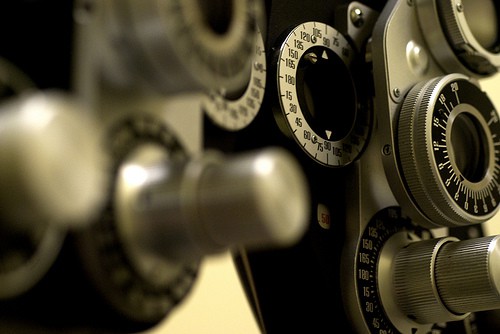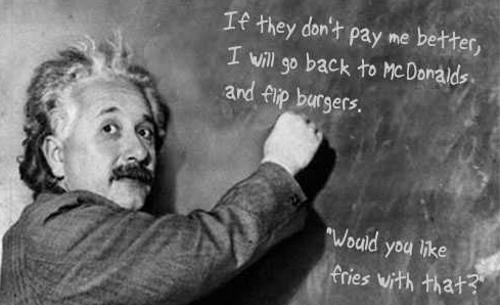
If it ever seems you’ve tried “everything” and it is not working out the way you planned, there is probably a good reason. A very common cause for a plan to fail is lack of planning.
Consider something as complex as a space ship for a moment. Space ships don’t always launch as planned, but they have an overall good record, considering their challenges. That’s because of careful planning. It has to begin somewhere, and it begins with a vision.
It is more than a coincidence that most successful companies have a vision statement. Those visions can change, but there should always be a vision. Vision is what guides people and keeps them on the right path to achievements.
You have undoubtedly heard somebody express the importance of setting goals and envisioning the outcome you want. It can sometimes sound far-fetched, and even a bit hokey. If you reverse-engineer this notion of having vision, the reality may not be as you expected.
I want to explain why those people who talk about having vision are not just promoting a dream world filled with unicorns and cute kittens. It is not just about dreaming up a hallucination, either.
The reason it is important to have vision, whether as a huge corporation or as an individual, is that it becomes a basis for your goals and expectations. With vision, you will begin to do the things that bring you closer to the desired outcome. Your vision is what helps you to develop a subconscious reflex to do things to affect the results you want.
Vision Doesn’t Work for Skeptics
There are a lot of skeptics who may consider the value of vision as hogwash. We are each skeptical at some point, and to varying degrees. Being a bit apprehensive about a positive vision and creating goals is what preserves us from failure. If you don’t hope for much, you are less likely to be let down. That kind of apprehension also preserves us from success.
I believe that lack of vision is one of the greatest causes for failure in business and personal pursuits alike. The fear of creating a vision and doing what it takes to follow that vision is simply more than some people can overcome. I have witnessed this for decades as a marketing consultant.
To a skeptic, the people who talk about vision are often the ones who somehow “got lucky”. They hype the whole idea that everybody should have a dream for their life. It must sound totally crazy to a skeptic. For the skeptical type, the very notion of “vision” as it applies to getting what you want probably sounds like some kind of mystical new age idea complete with smoking the wrong stuff, waving a magic wand, and other hokus pokus that makes people want to go chase unicorns.
I’m talking about the real world. This is not about some fancy notion that if you can dream it that the obstacles will magically fade away and you’ll get everything you ask for. That’s usually not going to happen, but you can definitely get a lot closer.

A True Story of Vision
There was a time when I was not expected to make it very far in life. I was frustrated with school, and my grades showed it clearly. I was bored to tears, and I hated sitting in a classroom to be drilled with the same information, over and over again. I had previously been a top student, but my teenage vision obviously did not include my grade point average.
This was hard for my mother. Despite her previously high hopes and continued business mentoring, my future was falling apart. I was becoming an outcast, and a disappointment. She was giving up on me. All of the sudden, I was not just letting myself down, it was tearing my mother apart. I did not feel good about that.
When I was 15 years old, I left school to start a company. Throughout my earliest career years, I was a bit fixated on somehow making my mother proud. It became a very clear vision for me. I imagined how it would be for her to not look at me as her biggest failure. Of course, at 15 years old, I only really knew one way, and that was to prove my lack of formal education would not hold me back and I could be successful in business.
My vision took me far beyond expectations. I did very well in business by fixing under-marketed companies in exchange for ownership equity. Ten years after leaving school, I was comfortably retired and enjoying Mother’s pride … and a bit of my own. My vision was complete.
Caution: Completed Visions Are Like Poison
Once my earlier vision was completed, I became a 25 year old retired bachelor with no vision of my future. I dated the wrong ladies, I made the wrong investments, and I connected with the wrong business partners. Things pretty much fell apart, and I needed a new vision to get back on a good track.
I discovered that without a continued plan – without a vision – life simply would not take me where I intended. It became obvious that it would be impossible to get what I wanted if I couldn’t define it.
I eventually became inspired again. My new vision came in the form of another lady. Call me a ladies man. She wanted to quit her mid-level job in the banking industry to grow her sideline Internet services company. We merged companies and I went back to work with a vision. There was nothing easy about it. It took a lot of time and effort, but the vision came to life.
This vision worked, because there was a goal. We expanded the goal as needed, and our vision was flexible. It turned out that we took a website development company and spun it into one of the largest wholesale providers of Internet access and web hosting in the world. Yes, a high school dropout can have a successful vision, too!
Visions Should Be Flexible and Failure is Always an Option
Years later, I had a vision of sports car racing. I bought some brand new Corvettes, spent a quarter million dollars per year, and invested countless hours of hard work and training in that vision. It was very important to me. I got quite good at it, too.
When I consider all of the things in my life that require vision, auto racing has got to be on the extreme side. It would be nearly impossible to make it around a two and a half mile race course with 14 turns in under a minute and forty seconds without a vision.
Since the vision of our Internet company was as developed as we thought it would ever be, we created a new vision of selling the company and opening an upscale bed and breakfast and racing school. It was a mutual vision to pursue our culinary talents and my racing passion. Indeed, my business vision had led me to a full-time career in automotive racing. But there was a curve in the road!
Anybody who believes that failure is not an option is leaving a lot of their potential to waste. Having a substantial vision requires being willing to step outside your comfort zone, and until you do it, you’re missing out.
Consider it like this: Failure is a side-effect of success.
The crash of the economy was not good to us, and it changed our vision. Change can be a good thing, when you have vision. Following my wife, Peggy’s culinary passion, we opened a wildly successful bakery, Mad Eliza’s Cakes and Confections.
Racing ran off the track for a while, but guess what? The vision is still there!
The Best Visions Bend, But Don’t Break
With a well-conceived and longer term vision comes flexibility. By its very nature, vision should be flexible and open to changes. It is not a formula for instant success, but rather a guideline. The best vision will create an overall look at what is to come, but it is not a predefined paint-by-numbers view of the future.
What got me thinking about the importance of vision today is because I’ve noticed my long-term vision coming clearer, almost without even consciously recognizing it. My earlier vision began to drive me to focus on what I really want.
In December, I announced that I would stop accepting new marketing consulting clients in January. That was because I decided to stop trying to be great at everything, as a CEO, in order to focus on my best talents and the things I am most passionate about.
I realized that my refined vision is to work for a company I will love. I started imagining how it would feel to settle into a new job with great coworkers and a new home in a new city. Then I imagined how amazing it would be if that company was one that fits into my larger vision. That means a company that is involved in racing, has a race team, or would have a good case to sponsor a race team if their marketing success – based on my hard work – could justify it.
The vision involves racing, and it involves marketing. I’m not shopping for my next race car just yet, but with vision on my side, it’s definitely in the works.
Almost without even realizing it, my efforts began to focus on companies that I could believe in and where I could improve their vision and feel proud to bring them success. I found myself researching companies based on their vision, and how it would fit with mine.
I’ve developed my vision, and I’ve noticed that I am making many renewed efforts, both consciously and subconsciously, to make that vision come true. It may sound pretty lofty to some people to find a job they love with a company where they can feel devoted. What I know for certain is that without a vision, I would fall short of my best outcome.
My vision may not come out exactly as planned. It is flexible – and negotiable. Then again, I was somehow able to make my mother proud. So I’m going with it.
Great Visions Are Shared
When you have a vision that others can share, it builds synergy. The vision becomes larger than its individual parts. Sometimes the hardest part is to share your vision with others, for fear of being shot down.
You should feel proud of your vision. Some people simply don’t have any. You may be amazed by the outcome of sharing your vision with others. If you don’t feel good enough about it to share it with others, it probably just needs more development. Even if this is the case, vision is always best when it is shared.
So now I ask you, what is your vision? Please share it.
Photo Credits:
Through the Glass by GoRun26 via Flickr
Seeing Truly by Joel Penner via Flickr
Podcast: Play in new window | Download








